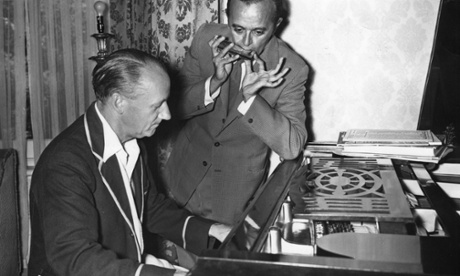
The Adelaide Symphony Orchestra and Sir Donald Bradman are synonymous with big scores. The Don amassed 6,996 Test runs, achieved a record first-class cricket score of 452 (not out), scored 29 Test tons, and ended his illustrious career with an untouchable Test batting average of 99.94.
Adored by millions, he has been painted, sculpted, coined, stamped, sung and written about, filmed, photographed and offered a state funeral (his family declined). He’s had streets, a rose, a museum, a boardgame, biscuits and yes, children, named after him – South Australian governor designate Hieu Van Le (attending) named his firstborn after Bradman.
In 1930, prolific Australian songwriter Jack O’Hagan claimed him for the nation with foxtrot hit, Our Don Bradman. Further lyric immortality came from Paul Kelly with Bradman in 1987, and John Williamson, who performed his 97/98 tribute to Sir Don at the memorial service in 2001 following Bradman’s death at 92.
New ways to create accolades as classy and inspiring as the gentleman himself may run out, but not before the South Australian government’s commission from expat composer Natalie Williams received its world premiere with the ASO under the captaincy of Luke Dollman. Tanunda-born Williams has the down-to-earth, gentle strength-of-nature of the Barossan native, and it shows in her music.
Peter Sculthorpe’s unprogrammed Small Town opens the evening from the Eastern end of the Adelaide Town Hall. The great Australian composer was sadly dismissed on 8 August. This is a sweet and fitting nod to Sculthorpe; Bradman was one of his heroes. Local composer Graeme Koehne is next in to bat with a splendid prairie-like revival of Square Order Shuffle from Shaker Dances.
Soprano Greta Bradman’s shimmering copper gown risks stealing the show – until the Don’s granddaughter opens her mouth. From the first exquisite note of Osvaldo Golijov’s Three Songs for Soprano and Orchestra, her control is extraordinary. The rich timbre of her lower register and the soaring high notes reveal her impressive range and delicate phrasing, delivered from a delightful, almost coquettish stance.
Williams’s multi-media spectacle includes some imperative footage of Bradman’s famous golf ball hit by a stump against a water tank, and grainy archival footage of the Don on the field. For most, who never had the chance to see him play live, this grand musical tribute of five movements, opening with The Boy from Bowral, is a sweet and emotional reminder of why he is still idolised.
Gary Sweet, who played Bradman in the 1984 mini-series Bodyline, narrates the text by biographer Peter Allen, made poetic by Williams. Bodyline, The Invincibles, and A National Hero chronicle the rise and rise of the great man, but like all good stories, it’s the love interest that hits for six. The romance movement, His Greatest Partnership, goes to the heart of the 65-year relationship between the Don and his childhood sweetheart Lady Jessie, bringing a lump to the throat of Sweet and the audience.
Also featured is a piece Bradman composed: Every Day is a Rainbow Day for Me. Headlines, story, music and archival footage combine into a dramatic, almost filmic, experience, as rewarding as the sound of leather on willow. Recorded by ABC Classic FM, the broadcast is yet to be scheduled (the ABC’s state postal boxes are all PO Box 9994; rumoured to be a nod to the Don’s batting average).

